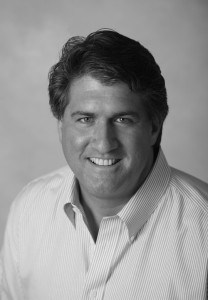 By: Andrew Neitlic, founder and director of The Center for Executive Coaching, The Institute for Business Growth and The Center for Career Coaching
By: Andrew Neitlic, founder and director of The Center for Executive Coaching, The Institute for Business Growth and The Center for Career Coaching
Do you feel like you are not living up to your full potential in your career? Are you ready to make a switch? If so, coaching might be the perfect next step.
Coaches work with already-successful people and help them to get even better. The field is growing, as shown by increasing membership in The International Coach Federation (ICF). Studies by the ICF have validated the benefits of coaching and, increasingly, coaching is being embraced by large and small organizations alike.
Following are ten signs that you might make a great coach:
- People seek you out for advice, guidance, and support.
- You are aware of your skills and expertise. That way, you can explain your value to others.
- You are a great listener. Coaching is at least 75% listening.
- You value relationships, but can give tough advice and feedback when appropriate.
- You are curious about and have a natural sense for what makes people tick.
- You enjoy working with people to resolve their most important challenges.
- You get excited when people go from being stuck to achieving amazing results.
- You enjoy helping people develop new skills and capabilities.
- You are constantly learning and improving, while staying open to advice and feedback along the way. The best coaches tend to be the most “coachable.”
- You have an entrepreneurial streak. Coaching is a business, and you have to market your services in order to succeed.
How did you rate?
After you get some training, coaching is an easy business to get into, with very little overhead. You can work where you want, choose your own hours, and make a lucrative income.
However, the biggest benefit is that you can take your experience and wisdom, share it with others, and find the perfect fit with your talents and passion. Janet Salazar, CEO of Maverick Vision International Advisors, shares: “The career path I was on was not fulfilling and I felt a sense of urgency to change direction. I’ve always been good at troubleshooting problems and helping people, so coaching was a natural fit, it’s genuinely me.”
Women coaches are often relieved to find that many men prefer being coached by women. Kelley Black, President of Balancing the Executive Life, notes, “With a woman as a coach, the energy is just different. What I find is that men feel like they can relax more around me, and that I don’t come in with any expectations other than supporting them with where they want to go. There doesn’t seem to be as much ego involved.”
Kristen Bates, who has established a coaching niche as the “engineer whisperer,” has found similar receptivity from men in technology and engineering. According to her, “Engineers and scientific men trust the process of experimentation and seem to find comfort in having a woman coach with the patience to facilitate a safe, comfortable ‘lab’ environment for them to explore their personal and professional goals.”
Women also have the opportunity to coach other women to be more successful. For instance, Cynthia Samuels, President of Atlanta-based Inspired Business Services, coaches women leaders as one of her niches. She states, “I am inspired to help my female executive clients develop more successful careers while addressing the unique set of challenges that female executives experience.”
The coaching profession continues to evolve, and there are many opportunities for women with the right talents and experience. If you have the qualities of a successful coach, your next career choice might be staring you in the face!
About Adrew: Andrew Neitlich is the co-author of Guerrilla Marketing for Coaches. He is also the Founder and Director of The Center for Executive Coaching, which trains coaches around the world. His coaching practice works with leaders in healthcare, universities, professional service firms, and emerging growth companies. He received his MBA from Harvard Business School in 1991. For more information about becoming a coach, visit www.centerforexecutivecoaching.com.
